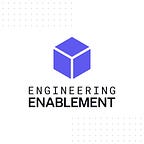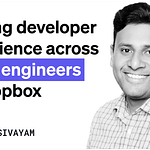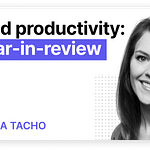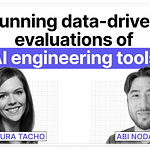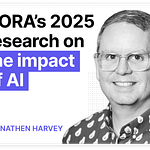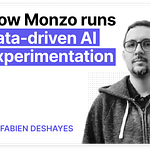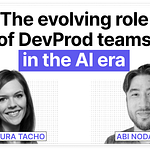Author and researcher Gene Kim has spent decades shaping how organizations think about DevOps, systems, and performance. In this conversation, he makes the case for why developer experience is the next chapter in that evolution and how it connects to everything from coordination theory to option value to the rise of GenAI. We discuss the deeper systems thinking behind DevEx, why tooling alone isn’t enough, and what AI means for the structure of engineering teams going forward.
The evolving landscape of developer experience
Option value theory and why it matters
Framing developer experience effectively
GenAI's impact on development teams
Where developer experience and AI are headed
Listen now on Apple, Spotify, and YouTube.
Some takeaways:
Developer experience represents the next chapter in transformation journeys. Organizations increasingly view developer experience and developer platforms as the logical next progression after DevOps. This evolution isn't random but part of a coherent pattern addressing fundamental coordination challenges.
The core problem is managing an ever-growing number of functional specialties. As technology becomes more complex, organizations face challenges coordinating efforts between increasingly specialized roles. What once required simple coordination now demands sophisticated social "circuitry."
Platforms solve the "30 tickets" problem. When developers need to open tickets with 30 different people to get anything done, productivity stalls. Developer platforms eliminate these coordination bottlenecks by providing self-service capabilities.
Focus on layer three changes. The most significant performance improvements come from changing the "social circuitry" at layer three (how people work together) rather than just changing tools or technology at layer two. Toyota's NUMMI plant transformation demonstrated this by achieving dramatic improvements with the same people and equipment.
The value of options can be expressed mathematically. The formula NK/T (where N is the number of modules, K is the number of parallel experiments, and T is experiment duration) shows how organizations can increase value through experimentation.
GenAI increases option value by reducing T. AI helps developers complete work faster, enabling more experiments in less time and increasing the overall option value of development work.
Higher uncertainty makes options more valuable. In uncertain environments (high sigma), the ability to defer decisions until you have more information becomes increasingly valuable. This makes experimentation and fast feedback especially important.
GenAI enables five key capabilities for developers. It helps them: 1) work faster, 2) be more ambitious about what they can build, 3) accomplish alone what would have required teams, 4) have more fun coding, and 5) take more "swings at bat" through rapid experimentation.
Don't frame DevEx as "coddling developers." When business leaders react negatively to developer experience initiatives, reframe the conversation around what happens without good DevEx: valuable engineers can't build, test, deploy, or get anything done despite their skills.
Position DevEx as a painkiller, not a vitamin. The business cost of talented developers spending hours wrestling with Docker images instead of creating value is substantial. This is a productivity problem, not a perks problem.
Talent retention depends on DevEx. One financial institution lost top Silicon Valley hires within 30 days because they were still waiting on laptops, environments, and completing compliance training. DevEx is critical to retaining the best talent.
The value creation happens in development. While platforms and infrastructure are important, the majority of value creation happens in ideation, research, design, and development. Fast feedback through excellent tooling is a critical prerequisite for this value creation.
GenAI is changing the shape of software engineering teams. The traditional makeup of engineering organizations is being fundamentally altered by AI capabilities that augment developer skills and productivity.
The "death of the stubborn developer" is underway. Tasks that companies previously relied on junior developers for can now be quickly completed by senior developers with AI. At one company, Gene gives an example of a project that would have been a summer internship that was completed by a department head in an afternoon.
The "novice's optional problem" threatens talent pipelines. Similar to surgical robots that eliminate the need for junior surgeons' assistance, AI may reduce opportunities for junior developers to gain experience. This could starve the path for juniors to become seniors.
Technology leaders are returning to IC roles. The increased productivity and enjoyment of coding with AI is drawing leaders back to individual contributor positions. Many prefer creating value directly over administrative management tasks.
GenAI opens new horizons for all skill levels. For juniors, AI serves as an infinitely patient teacher. For seniors, it elevates their capabilities and allows them to focus on higher-level architecture and problem decomposition.
Teams still need senior engineers to create the "task tree." While AI can help with leaf node tasks, experienced developers remain essential for creating architecture that enables independent action and problem decomposition.
Future research will refine our understanding. New research is needed to explore how AI impacts both individual developer productivity and the social "layer three" of engineering organizations.
The CHOP Handbook will codify best practices. Gene Kim and Steve Yegge are developing guidance on "Chat Oriented Programming" to help developers leverage AI for faster, more ambitious, and more enjoyable development work.
Timestamps:
(0:00) Introduction
(2:12) The evolving landscape of developer experience
(10:34) Option Value theory, and how GenAI helps developers
(13:45) The aim of developer experience work
(19:59) The significance of layer three changes
(23:23) Framing developer experience
(32:12) GenAI’s part in “the death of the stubborn developer”
(36:05) GenAI’s implications on the workforce
(38:05) Where Gene’s work is heading
Referenced:


